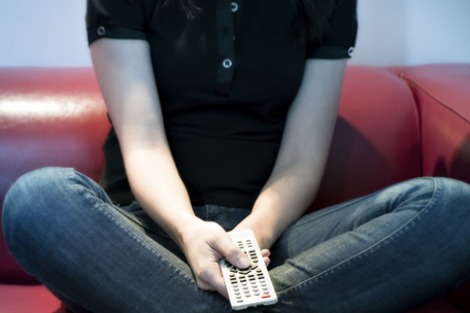 Makeover and reality programs are popular these days. Whether they're about giving geeks a style upgrade, blitzing backyards, or pimping-out cars, the formula is the same. Something deemed 'unattractive' is taken away, polished up with the best available products and outfitted with the latest fashionable accessories. The results are revealed at the end of the program, highlighting to the audience how, with the right know-how, we can all become brighter and more appealing versions of ourselves.
Makeover and reality programs are popular these days. Whether they're about giving geeks a style upgrade, blitzing backyards, or pimping-out cars, the formula is the same. Something deemed 'unattractive' is taken away, polished up with the best available products and outfitted with the latest fashionable accessories. The results are revealed at the end of the program, highlighting to the audience how, with the right know-how, we can all become brighter and more appealing versions of ourselves.
But what if, instead of celebrating physical beauty, our makeover programs were about creating a deeper change in people? What kind of inner-makeover programs might there be?
In Pimp my Soup Van, contestants are asked to deck out a van with items that could be used to help people on the streets. They make soup and sandwiches, and gather clothing, toothbrushes and other items to hand out to those who might need them. They compile contact details for support services, and ensure there's space in the van for ferrying people to doctors or hospitals where needed. They are then sent out on the streets, with the task of helping and learning the stories of as many people as they can over the course of a night.
In Imperfect Match, contestants are given a bunch of roses. But instead of giving the roses to potential partners, they are sent to a women's shelter. In return for a rose, a woman at the shelter tells them the story of how she came to be there — the abuse she has been subjected to, and the fear she felt at the hands of her partner.
In Please Marry My Boys, the contestants sit down with the mothers of people in gay relationships. The mothers tell them the story of how their sons or daughters realised they were gay, how they reacted when their child first came out to them, and how they feel about their relationship today.
The Refugee Factor sits the contestants behind a desk similar to those used in talent shows, with a red button and a big 'X' on the front of it. Asylum seekers are invited to tell their stories, outlining each of the things they had to endure in their home country before they fled. The contestants are asked to imagine themselves in the shoes of the refugees, and press the red button at the point when they believe the persecution these refugees felt must have become unendurable, when they themselves could no longer see any option but to flee.
For The Block: Indigenous Edition, the contestants are taken to an abandoned and run-down building site. They help clear away all the rubble and debris, and plant native vegetation in its place. While they work, local Indigenous elders tell them about the history of the land they are restoring, and something of the stories and traditions associated with it. The site, once restored, is given to the Indigenous people to use as they please.
In Big Sister, contestants are locked in a house together, with their only access to the outside world through their computers. They are asked to read as much as they can about world events — issues such as a lack of infrastructure that prevent development in the Third World, the natural disasters that are having an increasing impact on vulnerable communities, and the lack of employment that is destroying the dreams of young people in so many countries. Their tasks in the house involve coming up with initiatives to raise awareness and support.
A diary room is set up for the contestants to use in each of the shows. The room is away from the cameras and any prying eyes, and offers them some time alone to reflect on their experiences. They are asked to recall the faces of the people they encountered and to reflect privately on how they felt speaking with them. They are asked to think about the moments they were made to feel uncomfortable, and what that discomfort told them about their attitudes to the world.
How did hearing the stories of the people on the streets make them feel about their own lives? How did the stories from the women at the shelter and the mothers of gay couples affect their views on love and relationships? How did the stories of the asylum seekers make them feel about our place in the global community? Has their experience on the land changed the way they feel about our country, its native owners and our relationship to the environment? Did they believe the activities they conceived in the Big Sister house could ever have an impact on our world? What will they do once they have finished their makeover?
At the end of the program, the contestants, looking much the same as they looked when they went into the show, are interviewed about what they've learned from the experience. Their responses show people how, with the right know-how, we can all become brighter and more appealing versions of ourselves.
 Michael McVeigh is senior editor at Jesuit Communications.
Michael McVeigh is senior editor at Jesuit Communications.
Watching TV image from Shutterstock